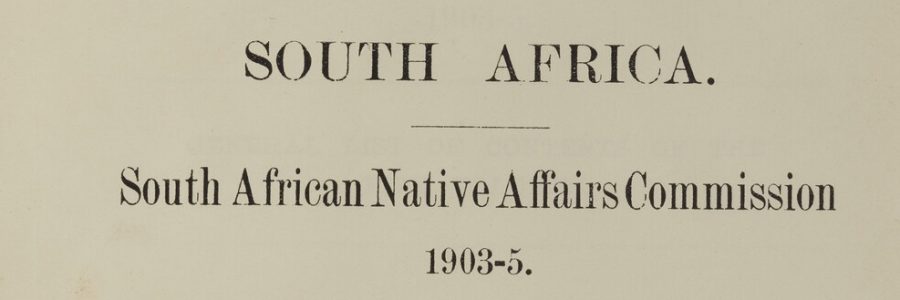
Digitising the volumes of the South African Native Affairs Commission
Post by Chloe Rushovich, Engagement and Communities Officer, RCS Carnegie Project
As a part of a shared digital curation project, Creating New Connections, Cambridge University Library has recently digitised Godfrey Lagden’s presentation copy of the South African Native Affairs Commission (SANAC) report and minutes of evidence. These volumes were presented to the Royal Commonwealth Society (RCS) collection by Frances Audley Preston (née Lagden), one of Godfrey Lagden’s daughters. The SANAC volumes were initially identified for digitisation by the Smuts Professor of Commonwealth History, Saul Dubow, who has published on the history of segregation in South Africa. The SANAC volumes are important to South African history as they mark one of the earliest discussions of racial segregation and serve as a precursor to the Natives’ Land Act of 1913, the Natives’ Urban Areas Act of 1923, and, ultimately, the Group Areas Act of 1950.
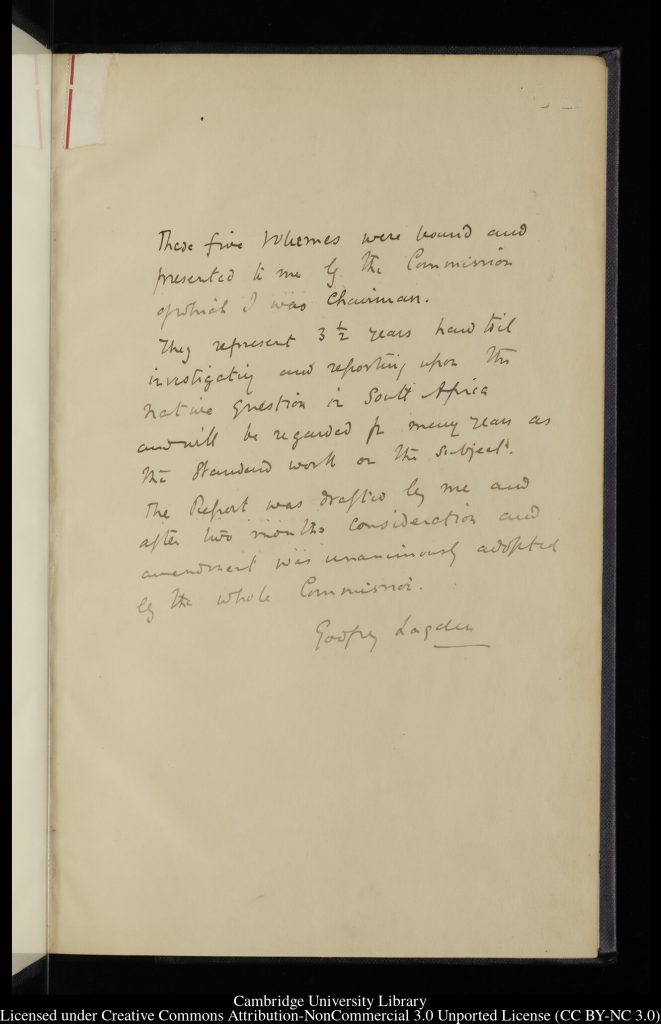
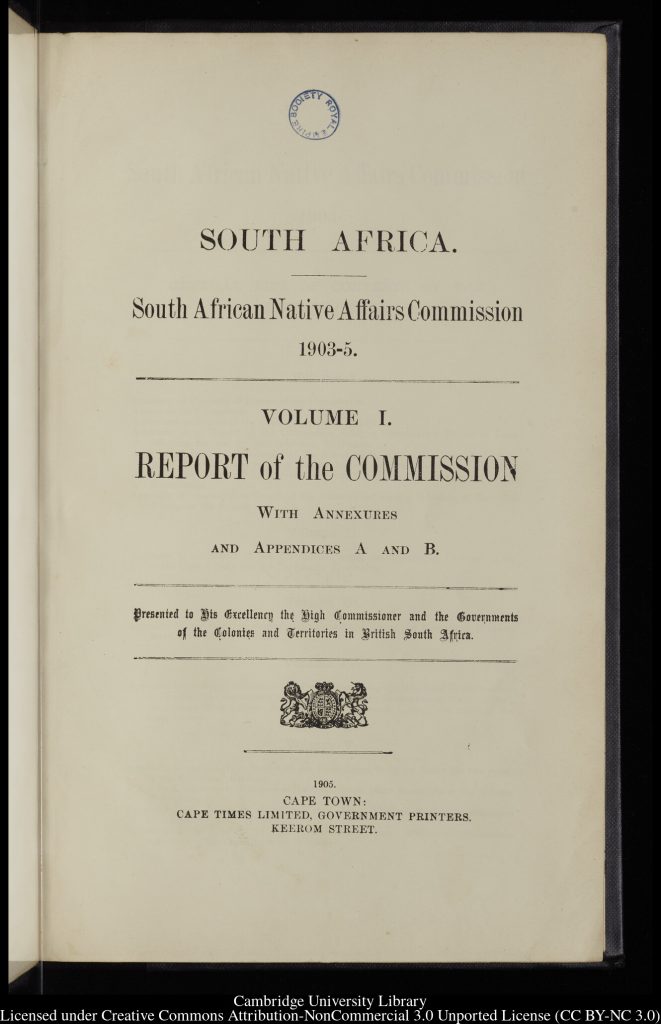
Godfrey Lagden’s presentation copy of the SANAC volumes (classmark: RCS.Case.a.152-156)
The commission, chaired by Sir Godfrey Lagden (1851-1934), later a vice-president of the Royal Colonial Institute (an earlier iteration of the RCS), took evidence from settlers and Africans across the four colonies, then known as The Cape (Western Cape, Eastern Cape, Northern Cape, parts of North West province), Transvaal (Limpopo, Mpumalanga, North West province, Gauteng, parts of KwaZulu-Natal), Natal (KwaZulu-Natal), and Orange River (Free State province), and across the territories then known as Rhodesia (Zimbabwe), Bechuanaland (Botswana), and Basutoland (Lesotho) between 1903 and 1905.
[…] it is desirable that a South African Commission be constituted to gather accurate information on certain affairs relating to the Natives and Native administration, and to offer recommendations to the several Governments concerned, with the object of arriving at a common understanding on questions of Native policy
Preface to the report of the South African Native Affairs Commission, pp. 1-2
The commission was appointed by the British High Commissioner for South Africa, Alfred Milner, to examine and provide recommendations for ‘the Native question’. The volumes of evidence give some access to the African voice which is so often silent or simply absent in official documents. The report, published in February 1905, advocated, amongst other things, for territorial and political separation along racial grounds, the industrial and manual education (as opposed to literary education) of African peoples, and the importance of Christianity.
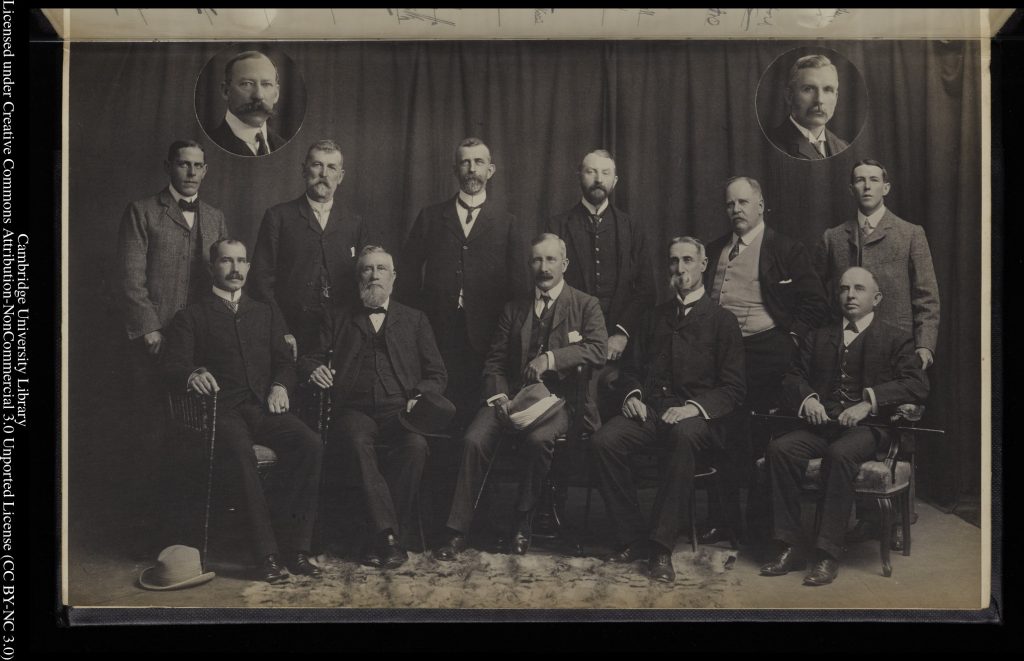
The RCS is partnering with the Five Hundred Year Archive (FHYA), a digital archival project which seeks to stimulate engagement with the neglected eras of the southern African past before the advent of European colonialism, to present and promote discussion around the SANAC volumes. The FHYA will post a fully searchable version of the SANAC volumes as an archival curation on their digital platform, EMANDULO. They will then endeavour to enrich the metadata surrounding the volumes, focusing specifically on the African voices within the volumes of evidence. This metadata enrichment will be done partly through internal research and work with collaborators, but will also have the space to take place through the comment section on the EMANDULO site.
A higher resolution, non-searchable version of the volumes is currently on the Cambridge University Digital Library (CUDL).
Notable interlocutors in the SANAC volumes include:
- John Tengo Jabavu – political activist, editor of the first isiXhosa newspaper, fought for equal rights for the Xhosa population of the Cape Colony, advocated for public education and women’s rights;
- Reverend Elijah Mdolomba – clergyman and political activist, president of the Cape African National Congress (ANC), ANC secretary-general during the presidency of Pixley Seme;
- Reverend Pambani Jeremiah Mzimba – founder of the Presbyterian Church of Africa;
- Reverend Edward Tsewu – minister of the African Methodist Episcopal Church, significant leader of the struggle for land rights in South Africa in the early twentieth century;
- Harriette Colenso – British Christian missionary in southern Africa, advisor to Dinuzulu, fought against the attempts by British colonial officials to destabilise the Zulu royal family;
- Theophilus Shepstone – British South African statesman, responsible for the annexation of the Transvaal to Britain in 1877;
- Arthur Jesse Shepstone – assistant-commissioner in Zululand, in the South African War, 1899–1902, secretary for Native Affairs (Natal), secretary of the Natal Native Trust;
- James Stuart – colonial official and prolific recorder of oral history materials in Natal in the late nineteenth and early twentieth centuries.
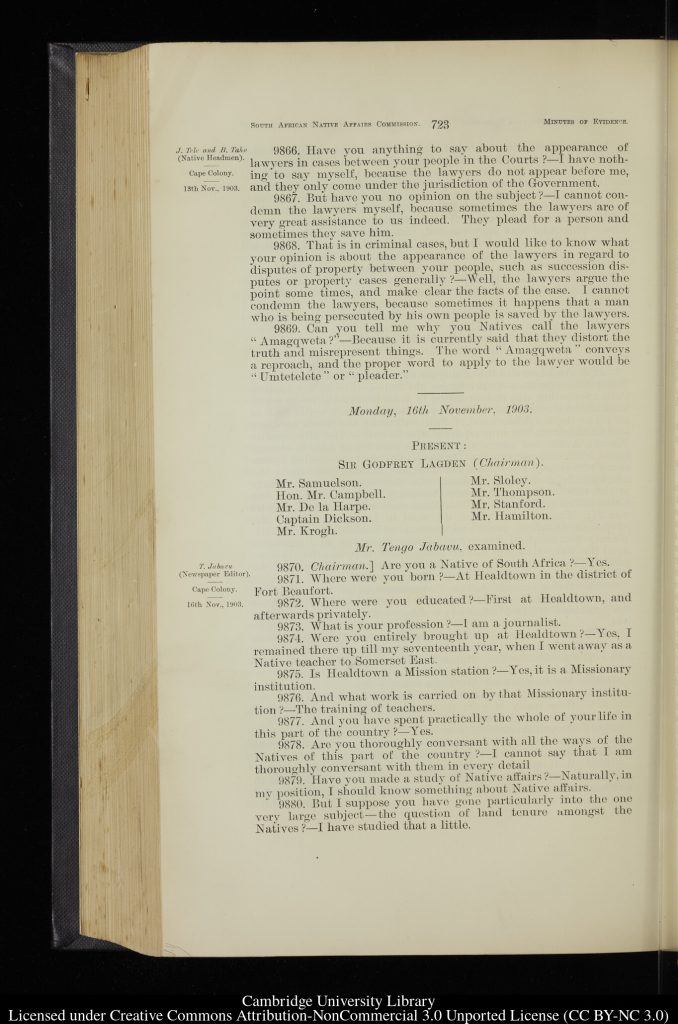
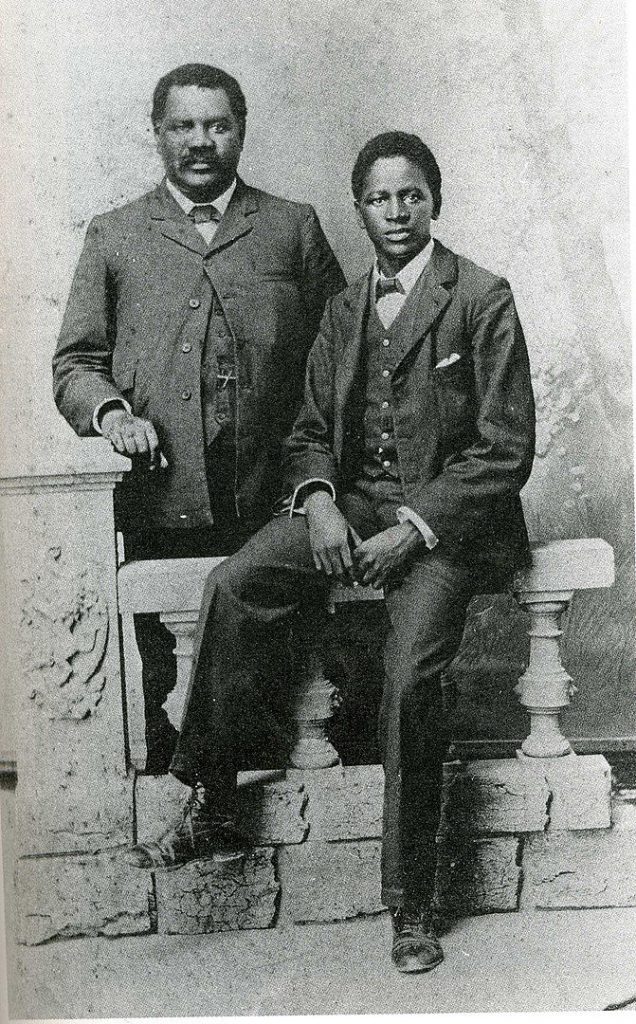
First page of evidence of John Tengo Jabavu, here described as a newspaper editor, in the Cape Colony volume. J.T. Jabavu, on the left, pictured with his son, Davidson Don Tengo Jabavu, c. 1903 ,from C. Higgs, ‘The Ghost of Equality’ (1997), p. 77.
For further details on the shared digital curation project, to get involved or to learn more about the RCS material relating to southern Africa please contact rcs@lib.cam.ac.uk.
